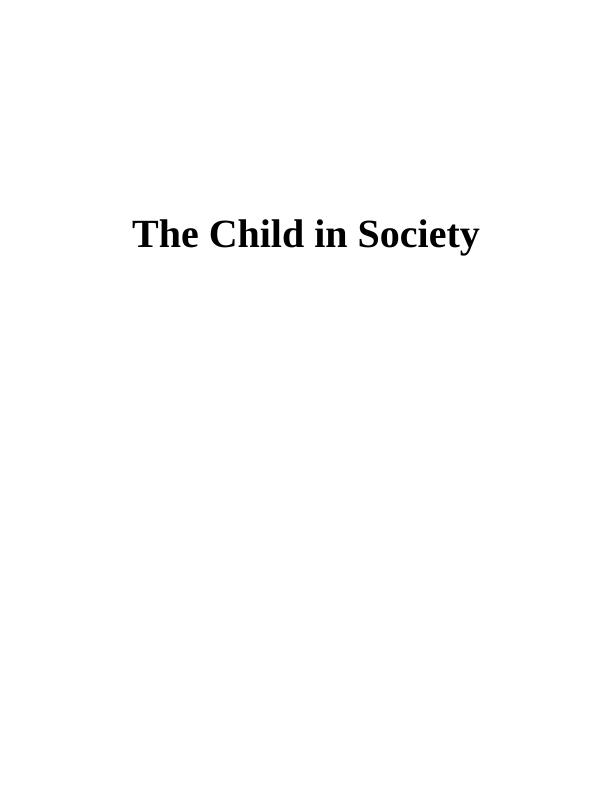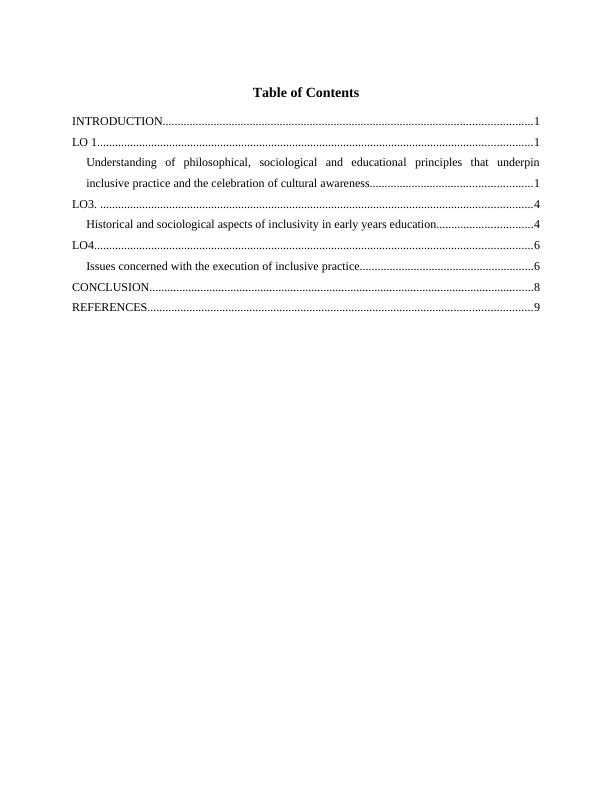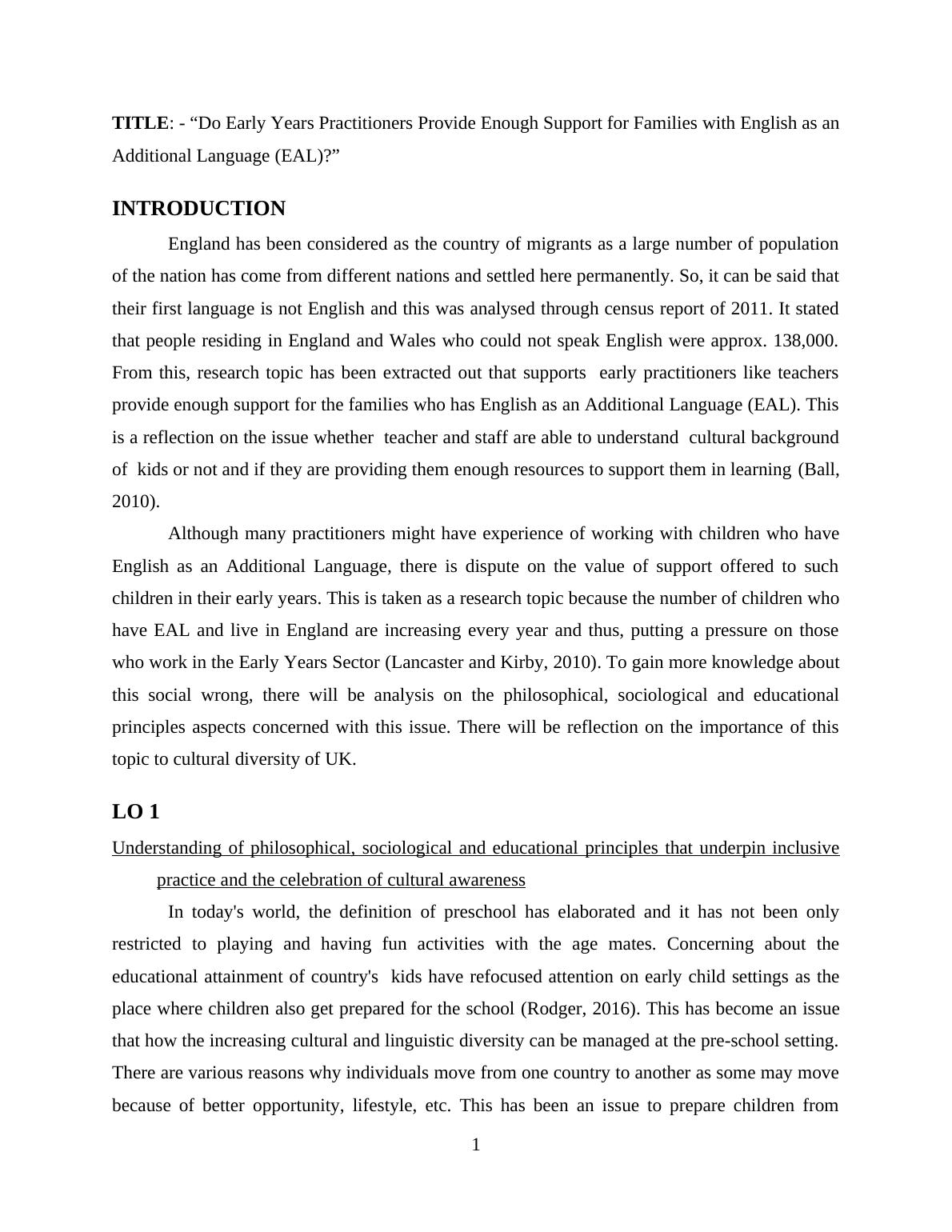Early Years Practitioners on Supporting Children learning English as an Additional Language (EAL)
13 Pages4004 Words112 Views
Added on 2020-10-04
Early Years Practitioners on Supporting Children learning English as an Additional Language (EAL)
Added on 2020-10-04
ShareRelated Documents
End of preview
Want to access all the pages? Upload your documents or become a member.
Understanding the Needs of EAL Learners in School X
|13
|3804
|439
Understanding the Needs of EAL Learners at School X
|36
|9307
|283
Inclusive Practice in Early Years
|10
|2143
|34
Early Childhood Education: Cultural Diversity, Poverty, and Children with Diverse Abilities
|11
|3300
|360
A Qualitative Study in Early Childhood Education and Care
|77
|21335
|42
Challenges and Strategies for Literacy Learning in Aboriginal Children
|10
|2164
|373




